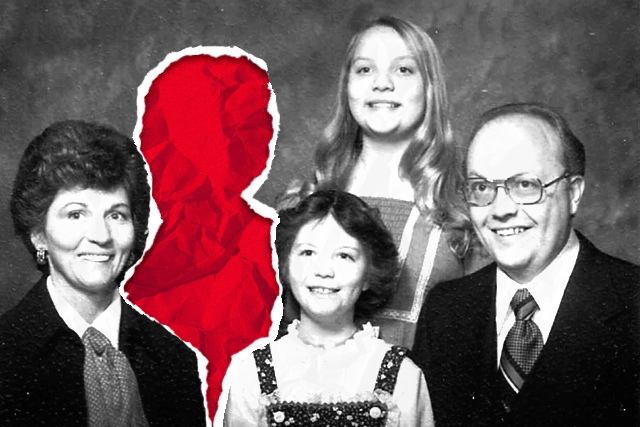
Confession: I’m one of the people helplessly caught in the dark void and obsessing on true crime. After Conversations with a Killer: The Ted Bundy Tapes, I decided to move on with Netflix’s Abducted in Plain Sight. I am well aware of the genre so I already expected it to be disturbing. I’ve always been intrigued with true crime, and has seen many disturbing ones. So while I wasn’t sure what I was getting into with this documentary, I thought I was at least prepared. But man, was I wrong.
Directed by Skye Borgman, the documentary told the true story of how a man, Robert Berchtold aka “B,” manipulated a conservative family in the early ‘70s. First befriending them, and then ultimately kidnapping and sexually assaulting the eldest of the three daughters, Jan, multiple times. The first kidnapping, B told her parents Mary Anne and Bob he was going to take Jan horseback riding. As you can guess, he never did that. Instead, he isolated her in his motor home, and—here comes the first crazy part—manipulated her into believing that they were both kidnapped by aliens. And in order to save her family, she needed to carry his child before she turns 16.
But what may be more unbelievable is how Jan’s parents acted: Mary Anne and Bob chose not to file a missing child report until after several days, primarily because they said B’s wife Gail insisted they don’t call the police. And even when the investigators finally came, lead FBI agent Pete Welsh had to drill into their minds the obvious fact that their daughter was kidnapped because they still couldn’t quite believe it. What’s worse is when B was charged with kidnapping, they still hadn’t cut off communication with him—Mary Anne even had sexual relations with him. Yes. That happened. And there were also other revelations in the documentary that would seriously disturb you—like the fact that prior the kidnapping, the two permitted to let B spend multiple nights in bed with Jan as part of his “therapy” since he told them he was sexually abused as a child. “Neither one of us was comfortable with him doing it,” Mary Ann says, “but it was his therapy.”
Believe me, there are more upsetting things in the documentary. Suffice to say, you have to watch it to believe it.
There’s a lot to take in in this documentary. So like other viewers, I immediately relied on the Internet after watching to help make sense of what I just saw. Like I thought, there were already several discussions, and many were primarily appalled at the parent’s behaviors—a feeling even the director herself admitted to sharing. “There were times when the family was just so frustrating to me,” she told Vanity Fair. At one point, she and her editor halted the project for six weeks. “It was the best thing that we could’ve done, because we were able to come back and feel everything we were supposed to feel,” she said. The parents’ frustrating naivete was something that definitely begs for scrutiny.
https://twitter.com/njonesatl/status/1096824515731034116
https://twitter.com/Stevefro1984/status/1093602424428867585
In 25 minutes into ‘Abducted in Plain Signt,” and I do understand why every one hates these parents but also…
This man was OBVIOUSLY a master manipulator. Fucking psychopath.
— Alanna Mairéad (@AlannaMairead) February 5, 2019
Vanity Fair attempts to explain it by stressing, “It is important to remember that Jan’s kidnappings took place in a small town, decades before the Internet and true-crime television franchises turned Americans into armchair experts on such seedy subjects as pedophilia, Stockholm syndrome, and grooming.” Meanwhile, The Atlantic, echoed this statement, and cited that during the 1970’s, the concept of pedophiles was something completely foreign to the public. Thus the idea of “intimate friends and family members” as a real danger to their kids seemed doubly impossible. “In particular, the fact that the Berchtolds and the Brobergs were all part of the same faith community seems to merit more analysis than it receives. So does a legal system that allowed Berchtold to kidnap, drug, and rape a child and receive a virtual slap on the wrist,” the outlet added. Their religion and “extraordinary capacity for forgiveness” was something the director also cited as a possible explanation to their actions.
I admit I am not fully convinced about the time period as an argument, though I can see how their conservative religion could greatly affect their way of thinking. I may agree more with Jan’s sister, Karen Campbell, who suggested matter-of-factly that their parents were simply masters at denial. “It’s too painful for them to realize that they allowed that to happen to her,” she said. But however frustrated I am, I do acknowledge that regardless, Mary Ann and Bob were ultimately victims of B too. This is something Jan herself insists. Being well aware of the reactions to the documentary, she said that what matters is that their family survived, and now her story is a catalyst for conversations on sexual predators.
Manipulation and grooming are not understood by so many. It happened to my whole family, this man was a master and my parents saved my life. They're the bravest people I know, willing to try to help the rest of you see what they didn't. That is the only reason we told our story.
— Jan Broberg (@janbroberg) February 4, 2019
She told E! Online: “Even those that are really angry with my parents and pointing fingers, I’m like, that is starting them thinking about something that otherwise they wouldn’t have thought about. The point is, is that when [predators] target your child, they usually start by grooming all the people around the child so that their access to the child is…almost natural, like they’re your best friend.” She stressed further, “They’re like the leader at church, you know, you go on service activities with. Or they’re the person in the community center or in the Boy Scout troop. So that conversation needs to begin because until we can have the actual understanding that most abuse of children, sexual abuse, is by someone they know, love and trust, and almost all of it happens inside the child’s home, we’re not going to get anywhere.”
Whatever people’s views are on the documentary and the people involved, that’s a message I could get behind. What the Brobergs went through was difficult, to say the least. The fact that they are sharing them now, despite judgements, brings them a type of redemption at least.
Art by Marian Hukom
For the latest in culture, fashion, beauty, and celebrities, subscribe to our weekly newsletter here
Follow Preen on Facebook, Instagram, Twitter, YouTube, and Viber
Related stories:
This is why we’re all obsessed with true crime
True crime podcasts to sharpen your female instincts
Ted Bundy’s advantage wasn’t his looks, it’ his White privilege
R. Kelly is definitely not sorry about preying on underage girls


